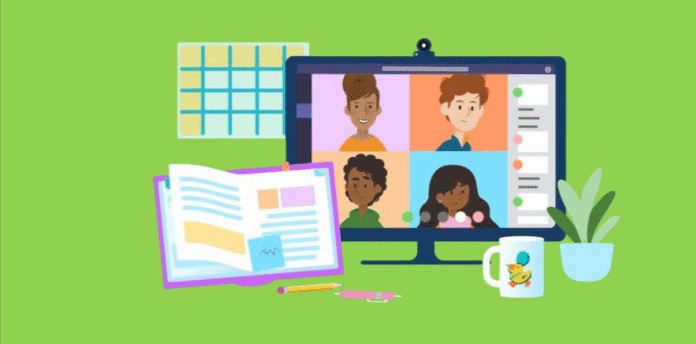The shift to distance learning has transformed how educators connect with students, manage classrooms, and deliver lessons. Microsoft 365 offers a suite of tools designed to streamline this process, fostering connection, collaboration, and clarity—even from afar.
In this guide, we’ll walk through a how an educator can maximize her/his output by using Microsoft 365, highlighting actionable tips, best practices, and modern tools to make remote teaching effective and engaging.
📌 Table of Contents
- Morning Check-In: Building Connection
- Homeroom Meetings: Fostering Community
- Assigning & Reviewing Work: Tools for Success
- Live Discussions: Engaging Students in Real Time
- Lesson Planning & Professional Development
- FAQs: Distance Learning with Microsoft 365
1. Morning Check-In: Building Connection
Start the Day with a Personal Touch
Begin your morning by checking in with students through Microsoft Teams. Here’s how:
- Post a Daily Announcement: Use the Posts tab in your Class Team to share a motivational message, daily agenda, or key resources.
- Monitor Class Conversations: Review student questions or discussions in the General channel. Encourage peer support by having students reply to each other’s queries.
- Quick Polls: Use Microsoft Forms to create a morning check-in poll (e.g., “How are you feeling today?”).
Why It Matters: Regular check-ins help students feel connected and set the tone for a structured day.
2. Homeroom Meetings: Fostering Community
Host a Daily Live Meeting
Schedule a brief Teams live meeting to nurture your classroom community:
- Agenda Ideas:
- Icebreaker questions (e.g., “Share one thing you’re excited about this week”).
- Overview of the day’s schedule.
- Celebrate student achievements.
Pro Tip: Record meetings for students who can’t attend live, and share the recording in your Class Team’s Stream channel.
3. Assigning & Reviewing Work: Tools for Success
Step 1: Create Assignments in Teams
- Navigate to the Assignments tab in your Class Team.
- Click + Create to design tasks tailored to individual needs or the whole class.
- Attach resources (e.g., Word docs, PowerPoint slides) and set deadlines.
Step 2: Provide Feedback
- Personalized Comments: Use the feedback box to highlight strengths and areas for improvement.
- Rubrics: Create custom grading rubrics in Teams to ensure transparency.
Step 3: Host Office Hours
Schedule drop-in hours in Teams where students can ask questions about assignments. For struggling learners, set up recurring small-group meetings.
4. Live Discussions: Engaging Students in Real Time
Balance Independent Work with Collaboration
Live sessions in Teams are perfect for interactive learning:
- Structured Roles: Assign students roles like “Question Asker” or “Poll Responder” to keep discussions focused.
- Polls & Breakout Rooms: Use Microsoft Forms for quick comprehension checks, or split students into breakout rooms for peer collaboration.
Example Activity: Host a debate on a recent topic using the Together Mode background for a cohesive virtual environment.
5. Lesson Planning & Professional Development
Organize Lessons with OneNote
- OneNote Class Notebook: Centralize lesson plans, resources, and student work in a shared notebook.
- Flipped Classroom: Record video tutorials (using Stream) and assign them as pre-work, freeing class time for discussions.
Professional Growth
- Join a PLC Team: Collaborate with peers in a dedicated Teams channel to share resources and strategies.
- Microsoft Educator Center: Enroll in free courses (e.g., “Distance Learning Essentials”) at education.microsoft.com.
6. FAQs: Distance Learning with Microsoft 365
Q1. How do I handle students who don’t submit assignments?
- Use the Assignments tab to track submissions and send gentle reminders via Teams chat.
Q2. Can I integrate third-party apps with Teams?
- Yes! Apps like Flipgrid and Kahoot! can be added to Teams for interactive activities.
Q3. How do I ensure student privacy during live meetings?
- Enable Meeting Options to restrict screen sharing and manage participant access.
Q4. What if a student misses a live session?
- Share recordings in the Stream channel and provide a summary in the Posts tab.
Final Thoughts
Microsoft 365 transforms distance learning into a dynamic, interactive experience. By leveraging tools like Teams, OneNote, and Forms, educators can maintain structure, foster engagement, and support every student’s needs—all while staying connected to their professional community.
Ready to dive deeper? Explore the Microsoft Educator Center for free training and resources!

